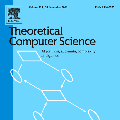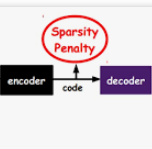Federated learning (FL) enables multiple clients to collaboratively train a shared model without disclosing their local datasets. This is achieved by exchanging local model updates with the help of a parameter server (PS). However, due to the increasing size of the trained models, the communication load due to the iterative exchanges between the clients and the PS often becomes a bottleneck in the performance. Sparse communication is often employed to reduce the communication load, where only a small subset of the model updates are communicated from the clients to the PS. In this paper, we introduce a novel time-correlated sparsification (TCS) scheme, which builds upon the notion that sparse communication framework can be considered as identifying the most significant elements of the underlying model. Hence, TCS seeks a certain correlation between the sparse representations used at consecutive iterations in FL, so that the overhead due to encoding and transmission of the sparse representation can be significantly reduced without compromising the test accuracy. Through extensive simulations on the CIFAR-10 dataset, we show that TCS can achieve centralized training accuracy with 100 times sparsification, and up to 2000 times reduction in the communication load when employed together with quantization.
翻译:联邦学习(FL)使多个客户能够在不披露其本地数据集的情况下合作培训共享模型,这是通过在参数服务器(PS)的帮助下交换本地模型更新实现的。然而,由于经过培训的模型规模不断扩大,客户和PS之间迭接交流造成的通信负荷往往成为性能的瓶颈。简陋的通信常常用来减少通信负荷,而客户向PS传送的模型更新中只有一小部分内容。在本文中,我们引入了一个与时间有关的新式的垃圾化(TCS)计划,其依据的理念是,稀少的通信框架可被视为确定基本模型的最重要要素。因此,TCS寻求在FL连续反复使用时所使用的空格之间某种关联,这样,由于对空格的编码和传输造成的间接费用可以大大减少,而不会损害测试的准确性。通过对CIFAR-10数据集进行广泛的模拟,我们证明TCS可以实现集中培训的准确性100倍的垃圾化,并在同时使用时到2000年的通信负荷减少。





